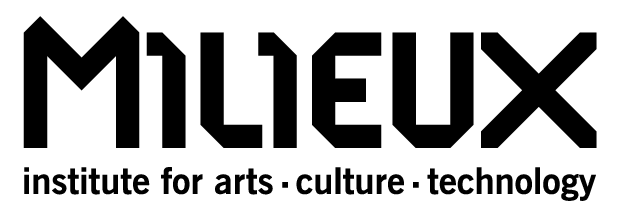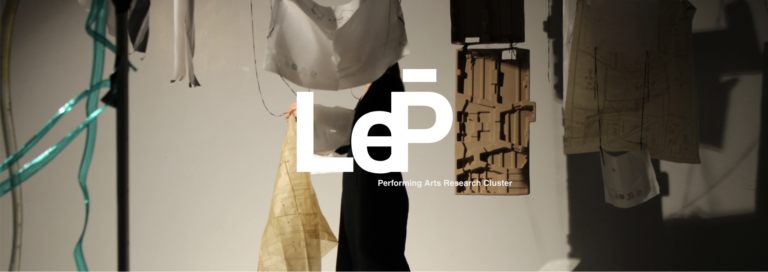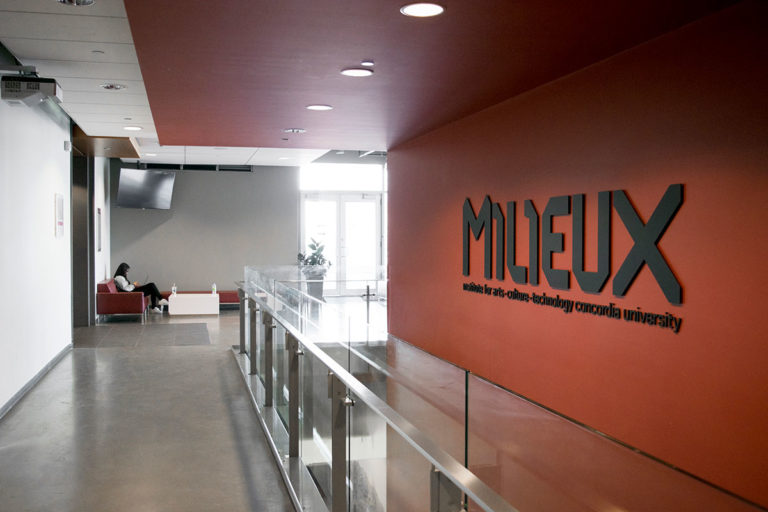By Matthew Raymond
This year, 10 postdoctoral fellows have made Milieux the home for their continued research and practice. Each fellow embodies a dedication to interdisciplinary thought and critical inquiry, pursued in ways that rethink the idea of clear boundary between theory and practice. Their presence is indicative of the active state of research at the institute this year, and we are very happy to welcome them to the Milieux community. To learn more about their individual projects and histories, check out their detailed bios here.
We are also excited to share an interview with two of our 2021 fellows, Dr. Marcelina Piotrowski and Dr. Johannes Bruder. This conversation, conducted by Concordia Philosophy MA Candidate, Matthew Raymond, examines questions of contemporary pedagogy, the uncertain and necessary role of the “humanities”, and the infrastructural conditions of knowledge-production. This reflection on the place and possibility of research is a recurrent theme across the work of all our 2021 fellows and is demonstrative of the translation and experimentation, unfettered by thematic or methodological boundaries, that makes Milieux such an exciting space to think and work. Enjoy!

Marcelina Piotrowski 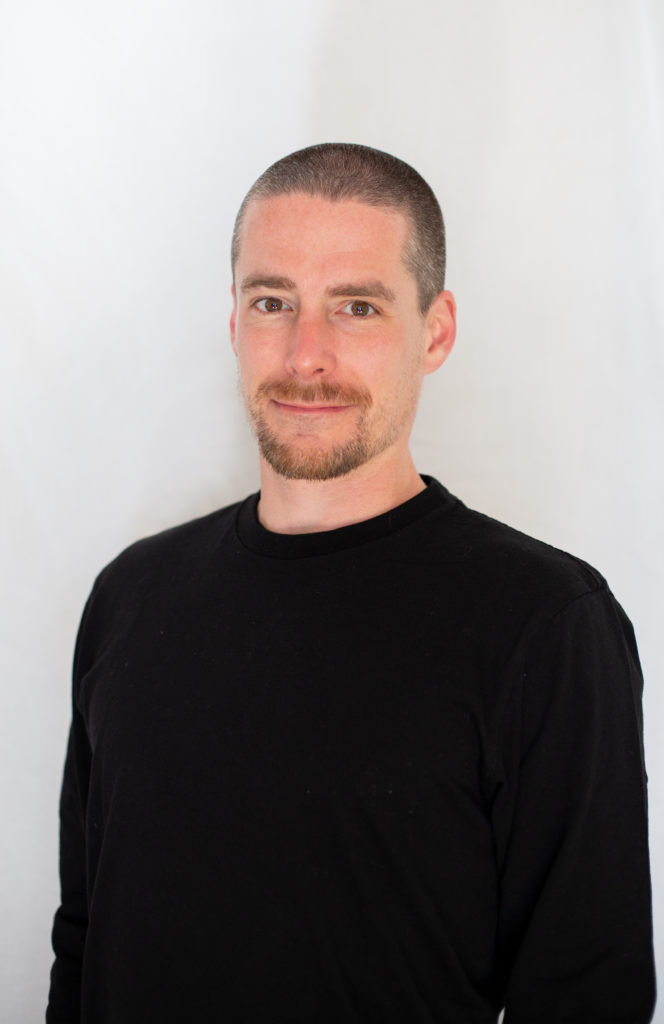
Johannes Bruder
*
Matthew Raymond: Who is the audience for your work? Is there a difference between your audience in fact, and your ideal audience? If there is a difference, how do you see the possibility of bridging that gap?
Marcelina Piotrowski: I think there are multiple: the thematic audience, the methodological audience and there’s probably also a theoretical audience. Maybe an aspirational or ideal audience as well, one incorporating all three. But I don’t know if we can ever really be sure about who is reading the work. I always hope that the work and the concepts that are produced can migrate and pollinate, and maybe make their ways into areas of writing that aren’t anticipated. I think there is a focus now in academia, particularly in our tenure-track aspirations, to be able to quantify our audiences, and to really understand who it is that is reading our work. Academia.edu or Google Scholar tries to do some of that quantifying for us. But the work usually gets read in different ways that we don’t anticipate, and maybe that’s more important than the quantification. I hope I can inflect other people’s work in the process. I think of my work as transversing across environmental media studies, and most recently environmental sensor technology and critical data studies, and education studies with a focus on public education and knowledge projects. The middle of this transdisciplinarity has been where my work often starts. Also intersections with theory as a way of doing research. I’ve done a fair bit of work with process philosophy, and concept work, and non-representational research. What people do with the ideas that we put out there is what matters to me, regardless of what domain they’re working in.
Johannes Bruder: I have to say that I was really intrigued by this question, and I had to think about it quite a bit. I’ve just recently started to try and not think about audiences so much. And it kind of works. I have always had a hard time situating myself in a disciplinary field. I have a background in sociology and political science, then I went on to STS during my PH.D, and have since published in anthropology and media studies journals, and even in a neuroscience journal. At the same time, I’ve been working at an art school in Switzerland for years now, and I was on a team that designed one of Bruno Latour’s exhibitions (Reset Modernity! at ZKM Karlsruhe, 2016). I think I’m just very familiar with being in-between, never quite fitting into a context. And it’s true that this being in-between isn’t always, or necessarily conducive to your work, I think I would have had an easier time if I had stuck to a discipline or a field. I just recently received a peer review of an article where one of the reviewers commented that the article definitely deserves publication, but I might want to contact another journal. Luckily, it was overruled by the editors. It makes you think about whether it’s worth the effort to modify your work for different audiences. But I also find it somewhat liberating to experiment with different epistemologies and to receive feedback from various peer groups.
And on top of that, I’ve increasingly tried to think of my work as not necessarily needing an audience in the strict sense. Of course, I want the work to be acknowledged in some sort of way, and I’m very happy if people read and engage with my book. But I don’t think of myself as a particularly good writer, I’m certainly not a great speaker, and my work wouldn’t exist if there weren’t so many great people out there planting ideas in my head. And I think what I’m hoping for is that what I do is somehow useful, that it can spark conversations and collaborations with other people that I like. I’m also increasingly thinking of my work in pedagogical terms, as a sort of collective research process that is more or less immediate, or that translates into an intervention, into something that takes on a life of its own. I’m not quite there yet, but it’s definitely where my interests lie and what I want to focus on in the future. I currently feel most comfortable when I teach or when I have the opportunity to collaborate with others and see how we advance collectively, how we learn from each other in the process. And that may in some way explain my resistance to thinking about audience.
“I’m also increasingly thinking of my work in pedagogical terms, as a sort of collective research process that is more or less immediate, or that translates into an intervention, into something that takes on a life of its own.” – Johannes Bruder
Both of you, beyond the themes of your research, take an interest in the question of “pedagogy” or “education”. What is most exciting to you right now in that domain? Who is experimenting in ways that inspire you? What do you hope for by being interested in these ideas?
JB: Well, I think Milieux itself has a lot of very interesting initiatives, right? Whether it’s the Indigenous Futures group, Jason Lewis, LeParc, Speculative Life. The work of Orit Halpern and Jill Didur, Chris Salter, among others. I think the most intriguing conversation on methods and pedagogy that I’ve recently seen was at the fifth anniversary of the Catalyst journal, a conversation between Moya Bailey, Max Liborion, Tanya Perez-Bustos and Thao Phan. I really hope they will publish the recording at some point because each in their very own way spoke to conducting research that has immediate real world consequences, because it intervenes where problems emerge rather than going through the academic motions.
It’s something that I am still struggling with–letting go of disciplined perspectives. This week in one of my classes, we had a discussion with students on the topic of changing terminologies, and the resistance against these types of changes in the tech world. We collectively read a New York Times article that revolved around racist terms in Computer Engineering, such as master-slave, or blacklist-whitelist. When we sifted through the comment section of the article, comparing the Reader’s Picks to the general comments, we noted that the Reader’s Picks section was dominated by ignorance towards the significance of the terminology. While I was entirely focused on discussing the comments in light of current discourses in the tech & ethics domain, some of the students, Alexis Barreto and Lorenzo Cicirò, insisted on the importance of talking about the why and how of ignorance towards terminology more generally. It’s something they were concerned with since, as Alexis put it, it’s always important to understand ignorance and to reason with it. I was really grateful for that comment–it forced me to engage with what they considered the problem in this context.
MP: The question of education is quite important to my work, and I might look at it from a slightly different angle than Johannes. In my research, I’ve been interested in problematizing how sensor technologies are being used in the name of public education or public knowledge projects. Often these projects appear under the names of data democracy, or public education, public enlightenment, public participation. So I’m interested in where knowledge is produced, and how knowledge is used in a sphere that ties together technological and post-human sentience, while also positioning itself as an aid to human intelligence, as in enabling humans to make better decisions. This leads me to my interest in the coupling of data intelligence and cognition, and how we think about them in relation to the unknown. Like the fact that we might not know how to solve climate change, even with more data. It doesn’t give us answers about how to go about it politically, or how to relate to it. And the coupling of these terms together, of the unknown and sentience/intelligence is interesting to me in knowledge production projects. For instance, I was reading Jason Wallin’s and Jessie Beier’s recent work on negative pedagogy. Then there is Eugene Thacker’s work on concept-horror. These are fascinating ways to think about this topic of dark philosophy of education, and thinking about the unknown and unresolvable as a kind of post-utopian philosophy which doesn’t always focus on the persistence of an emancipated or post-enlightenment subject. Much of the personal quantification technology, and the projects of data authenticity, data veracity, are selling us on this possibility of truthfulness, when there are limits to human’s ability to grasp our reality and the unknown is what is driving the engagement.
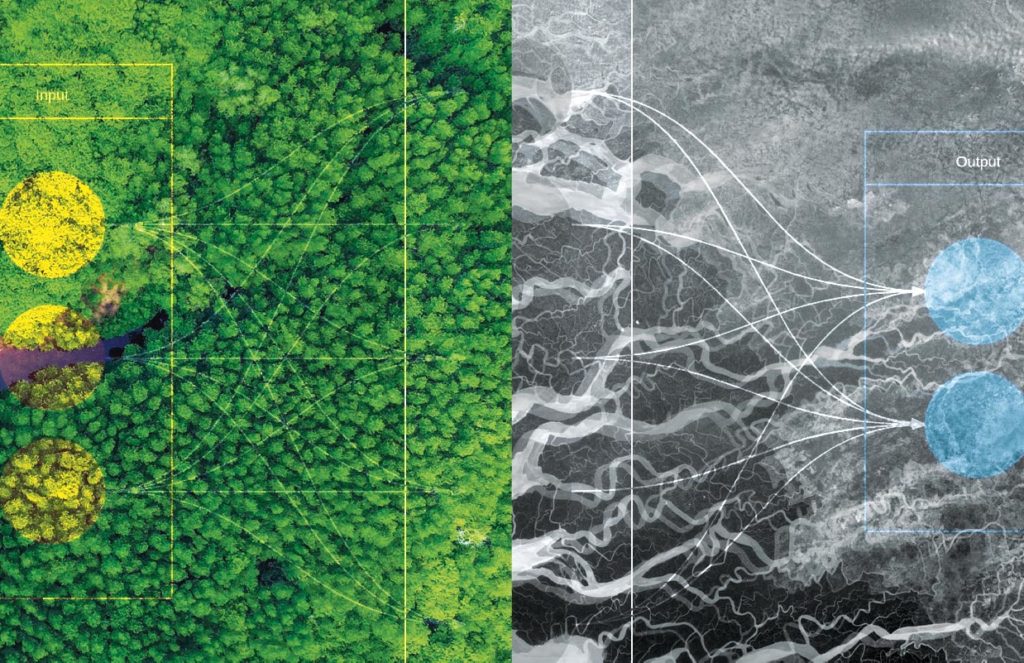
A common theme between you seems to be the way that systems-level or infrastructural conditions inflect the production of subjectivity: how do you see this in relation to your research context? How do you conceive of the subjectivity of knowledge-production today? Is this an active field of investigation or resistance for you?
MP: Subjectivity is an important part of my research, though more so in my previous project where I focused on environmental media activism. I was thinking with diverse folds, in terms of developing folded methodologies about what is external to subjectivity, and how the subject is being produced in relation to that outside. So material forces, temporal forces, power and governmentality, as well as knowledge production. I think this is such an important part of education as well, in that the forces that are producing subjectivity are really about how one knows oneself, and how that type of knowledge is available. With that question, the theme of subjectivity moves in my work towards thinking through post-human sentience and post-human thought. I’m thinking about planetary thought, how the planetary becomes thought: Orit has a recent piece that came out about smart earth or planetary intelligence, and its role in moving beyond a humanist conception of subjectivity. And then at the same time this poses the question: what space does this leave for the human in ecological politics and governance? I think the human subject is often kind of missing within knowledge production paradigms based on post-human sentience. I’m interested in all the data that is being produced and not experienced, as an excess of subjectivity, an excess of sense.
JB: Yeah, I think that’s really where our interests intersect. We could probably have an hour long conversation on that topic alone. I have been working on Google DeepMind a lot over the last years, on how Google DeepMind approaches artificial intelligence, and how they’re constructing a narrative around general artificial intelligence through their prototype, with recourse to neuroscience research that, as I describe in my book, is increasingly approaching the brain as some sort of logistical infrastructure, both epistemologically and methodologically. The neural network itself is an infrastructural metaphor, or an imaginary of intelligence, in which intelligence derives from exchanges in networks, or the collective excitation of populations of neurons, if you will. And what’s interesting here is that logistical processes in the brain, whether they’re chemical, physical, or electrical, are reconceived as a source of subjectivity or of a specific worldview that we develop based on experience. This idea translates into neural networks such as the Open AI the language model GPT-3, or very recently, you have Huawei’s PanGu-Alpha which is even bigger. And they both promise to represent language in its entirety through some sort of generative genetic code. This is infrastructure that learns.
In some weird sense, this infrastructural approach allows us to speak of machine learning algorithms as new liberal-democratic media. The network will gradually strengthen ties between individuals that fire or vote together and it abolishes connections that are rarely used. Now, that might seem democratic, but as the work of Wendy Chun, for instance, shows, this thinking has a history and it is linked to the idea of homophily, where homophily is the tendency to bond with people who are similar to ourselves in terms of personal history, religious or political preferences, and social status. Homophily is why we are comfortable only being exposed to things that are in line with our own norms or values. It is an inward facing, self-fulfilling prophecy. And I think this is where infrastructure conditions the production of subjectivity, either more or less immediately by way of social media, or through knowledge practices that are implemented in neural networks and machine learning. And then what might seem democratic, in fact, introduces some sort of self-perpetuating artificial homogeneity, and an ethics of what counts in the world. I have been looking into ideas and concepts of pathology in that regard, of the outside, which derives in part from neuroscience research, but also from sociology and economics. So, when is the network saturated, when does it reach a critical state? When does it go rogue? Orit Halpern and I recently submitted a paper on the topic that’s somewhat provocative titled “Optimal Brain Damage”, where we look at the neurological and economic roots of prominent concepts in machine learning, such as bias and optimization. But I’m also very interested in going deeper into understandings of mental or systemic health and how they sustain the imaginary of artificial intelligence, because they are often rooted in psychology, but also colonial sciences. So, in general, I think that what must be said about the infrastructural character of subjectivity is that it has two sides. One the one hand, there’s more and more of our subjectivity relegated to infrastructure. And at the same time, we think of ourselves more and more in terms of infrastructural nodes.
Reflecting on the persistence of the technological in your work: what does “the humanities” (if this is a name you identify with) have to offer the fields of engineering, science, business? Is this offering possible today? If it is not, what would be needed to make it possible?
MP: I think the word “‘offering” here trips me up a little. Because I do think that there is a relationship between the perception of academia and its outside world in terms of theory versus practice, and the idea that there is some kind of disconnect or tension between the two. And the “offering” suggests that academia ought to be focused on its outside and demonstrate its practicality in terms of providing some kind of solution to something. Developing different ways of thinking is in itself a type of practice. In terms of the humanities, I think about my own work in terms of the productions and enactments of the posthuman more than the human. I’m interested in the places where the human is problematized, within design, within technology and science. So I don’t do too much thinking about how the offering might be perceived as a kind of utility or solution, but maybe the offering is the question, when does the human really become a problem or an opportunity for these fields? And when are they more interested, perhaps, in a post-humanity? Science has always been interested in the production of human bodies and in relation to human self-understanding, and human self-governance and the humanities have been interested in science. I’m thinking here of the work of STS and also Paul Rabinow and Anthony Stavrianakis in mapping concept work in synthetic biology and nanotechnology.
JB: Yes, I think what you said about the “offering” is also something that I stumbled upon. Thank you for bringing it up, because we tend to expect that the humanities can sort of cure big tech, for instance. On my part, I experienced this when I started doing research for my Ph.D on computational neuroscience and doing ethnography in labs. People in STS were entirely focused on critiquing psychology and neuroscience lab research, and how they produce the human by actually turning the human into lab animals, if you will. But then again, you could say the same thing about anthropology, right? Anthropologists were going “into the field”, but they were also constructing their experimental situations where they were categorizing people and deciding about what is human and what is not, what is animalistic and what is tribal.
In terms of my own work, I’m very interested in pathology, which is part of a broader interest in the dehumanizing erasures and exclusions that produce the category of the human, by spectrums that include and thresholds that exclude. And I think this is where we can look for new openings, for interventions that unsettle systemic logics and rationalities. And that may be what the humanities can bring to engineering, because they have a tradition of doing empirical research on the historical build-up of dehumanizing gestures. Also, when I think about this question, I always think about a former colleague of mine, Des Fitzgerald, who wrote a book with Felicity Callard called Experimental Entanglement. It’s basically a collection of experimental case studies where neuroscientists and social scientists collaborate. And it was not about the results or producing better neuroscience or better sociology, but rather the very process of talking to each other. So to come back to the idea of offering, I think that it’s really important to actually start a conversation on equal footing.
“I’m interested in the places where the human is problematized, within design, within technology and science. So I don’t do too much thinking about how the offering might be perceived as a kind of utility or solution, but maybe the offering is the question, when does the human really become a problem or an opportunity for these fields? And when are they more interested, perhaps, in a post-humanity?” – Marcelina Pitrowski
What inspired you to continue your research at Milieux? What do you hope comes out of your time at the institute?
JB: For me, it has been super interesting to be at Milieux, because, as I mentioned, I’ve been working at an art school for years, in the Critical Media Lab. We are doing research on modes and histories of design, how the practices that design has come to involve govern in society, and what it would take to think design differently as an essentially social practice. And I think we can only advance this endeavor if we begin unlearning traditional modes of design and start thinking about modes that do not subscribe to the logics of innovation and capitalization that are still present in many forms of speculative design. Being at Milieux, and having the opportunity to talk to many people with such different backgrounds was really helpful in thinking further about this research. We have also started this group at Speculative Life that is called D4-Research for Ethical Speculative Design. It’s tentative, but it has been great to assemble people who have the same interests and want to work together– being able to exchange with people who come from very different disciplinary backgrounds, and have an interest in these methodological questions and practice-based research, and also on research-creation, because that isn’t something we have in Europe. And I’m also looking forward to talking more to Marcelina, hopefully!
MP: Yes, likewise! I think through this interview we’ve gotten to know more about each other, which is great. My desire to come to Milieux was definitely driven through reflection on my own work and wanting to continue to find a space that is open to that kind of transversal energy that comes from working across disciplines, across methodologies. And across theory and practice. I think there are a lot of people here doing work that is conceptually risky and methodologically novel, and this is one of the reasons I wanted to come here, for instance to work with Orit Halpern and alongside people like Chris Salter. I really love the idea of research creation and speculation, and that is one of the things we are doing as part of the Speculative Life Cluster that Dr. Halpern directs. I also think centers have a really important role in universities, as they draw together people and create networks that can mentor students and new academics. In a way, the pandemic has driven us to be alone in our creative spaces, which we might have otherwise shared, but I think this actually produces more opportunities because there are all these different connections happening in a virtual network. When a center goes pandemic, if we can call it that, I think it amplifies the connections exponentially. So you know, “Milieux on pandemic”, if we can call it that, is an exciting space.
